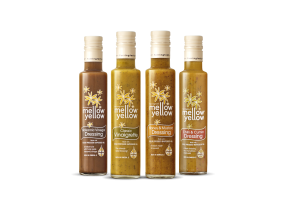Day 32 in this year’s harvest and exhaustion has taken over from adrenalin. After an initial rain interrupted false start, the rape harvest went without a hitch, which despite the lack of rain in the months before, produced a pleasing ‘good average’ result. Following the rapeseed, we moved straight into to some early wheat on light land that had died a premature death from lack of moisture. This also flew by in record time, although the low yield had something to do with the speed we moved across the acres. Everything went to plan, no machinery breakdowns, long dry days and plenty of packed lunches and supplies to keep us going for two weeks without a stop, clocking up more hours than I like to think about.
Following the early wheat, we then had to be patient and wait for the next bit to mature. The weather was still perfect for combining, many neighbours were at it, but we had to wait a few more days. This is frustrating, as with experience the weather will change at any time. In theory, we only had another two weeks of combining and it would all be done for another year.
Finally, the wheat was just about ready, we combined one field with a very pleasing yield on our heavy land that I would not have expected only a month earlier. Then the rain arrived. The weather reports say the Jet Stream has gone south and our island nation is stuck between a high and a low-pressure system battling it out; the result being a prolonged period of sunshine and showers. All pretty standard, but frustrating never the less. We have now finished all of our winter wheat, combining as soon as the conditions allow, in a stop-start fashion resulting in us harvesting the same hours in a week as we were doing in a day at the start of harvest.
When conditions are like this, it is difficult to keep the adrenalin and motivation going, having to ensure we are absolutely ready in the right place when conditions are right. Late one Saturday night we needed to move the combine 300 metres from one field to another when a tyre blew on a trailer. Quickly Marvin and I got the compressor and tools to try to repair the tyre, but could soon see it was not going to happen. Rain was due the next day and we wanted to keep going. Time for blocks of wood and the forklift, and we were able to drag the trailer to the next field so the work could continue a bit longer.
We still have another few days worth of harvest to do, but I don’t know when we will get these days as August now turns into September. Father, Marvin and I have worked hard over the last month, we are all getting a little tired and some may sit grumpily at times. It is standard procedure and something long-suffering farmers’ wives and families have to put up with on an annual basis. Something I try to remember, as, without the support team in the background, the job would be impossible.
As September draws to a close, we are in the final stages of the busy workload. Harvest seems a distant memory, the rapeseed is all planted and growing well, although a little rain wouldn’t go a miss; now it is just the wheat that needs planting. So the question is to plant wheat or not to plant wheat?
Like many of the jobs on an arable farm, I don’t have the luxury of a crystal ball to see what the weather is going to do over the next few weeks. September has to date been the driest on record. The lack of rain has not allowed much blackgrass and other weed seeds to germinate and grow, which ideally I would like to have a chance to kill off with a weed killer before we start planting wheat. If we drill too early, these weed seeds will germinate at the same time as the crop and cause problems for the next season. If we wait too long and the weather breaks, we may struggle to get the crops into good soil conditions, or at all. The plan is to encourage the weeds to grow quickly by giving the soil a gentle rake, kill off the weeds before planting some fields whilst the conditions are favourable, then wait as long as I dare before planting the remainder. In other words, I’m hedging my bets in trying to make the right decision.
I read recently that Richard Branson has given up eating beef because of his concerns over greenhouse gas emissions produced by cattle. He is, of course, correct – cows produce methane (from flatulence), however, Mr. Branson’s concerns are more about intensively produced beef in South America where cattle are raised in feed lots consuming huge resources to produce beef for North America. It is a completely different story in Britain and other similar countries, where beef is reared less intensively. Whilst it is true cows do flatualte because they are ruminant animals, meaning they eat grass, something we humans are not able to do. If we all stopped eating beef, what would happen to our green and pleasant land? Perhaps we could plough it all up to grow more crops to feed a vegetarian world, but there again that would cause other environmental issues, including the emission of greenhouse gases.
Sometimes, out of good intensions and trying to make the right decision, people can get a little side tracked without seeing the bigger picture. Besides, did I mention that air travel is a huge cause of greenhouse gas emissions? What would Mr. Branson say about that?

 Oils
Oils Rapeseed Oil
Rapeseed Oil Chili Oil
Chili Oil Dressings
Dressings Classic Vinaigrette
Classic Vinaigrette Balsamic Dressing
Balsamic Dressing Honey & Mustard
Honey & Mustard Chili & Cumin
Chili & Cumin